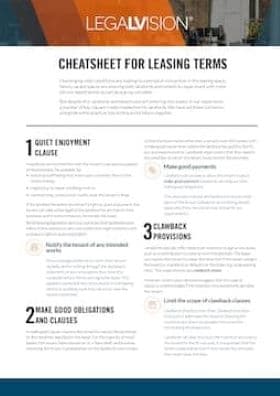The rise of short-term rental platforms like Airbnb has transformed Western Australia’s accommodation market, offering travellers diverse alternatives to traditional hotels. However, this surge has sparked concerns about community welfare, housing availability, and responsible hosting. Consequently, regulations governing short-term rentals in Western Australia have evolved to balance economic interests and community well-being. This article will outline the current and upcoming regulatory changes effective mid-2024.
Background
After the 2019 Parliamentary inquiry “Levelling the Playing Field: Managing the impact of the rapid increase of short-term rentals in Western Australia,” the Western Australian State Government pledged to enhance regulations for short-term rentals. The commitments include:
- exploring a registration scheme for providers;
- drafting a tourism position statement;
- revising definitions for short-term rentals; and
- offering comprehensive guidance to local governments for their planning strategies and schemes.
Short-Term Rental Accommodation Registration Scheme
Short-term rental accommodations (STRA) in Western Australia’s metro regions will see significant changes starting mid-2024. By January 1, 2025, all STRAs must be officially registered. This aims to create a more structured and regulated environment that considers the interests of property owners and the community.
Previously, local councils decided whether approval was needed in STRA cases. The state will now introduce a central STRA Register to streamline and standardise registration.
The government will introduce new planning approval requirements for un-hosted STRAs in metropolitan areas with high demand for short-term rentals. Property owners do not need approval for stays up to 90 nights within a 12-month period. However, stays exceeding 90 nights will require planning approval before registration and operation. This nuanced approach balances the popularity of short-term rentals with community responsibility.
In regional areas, local governments will continue to decide on planning approval needs, recognising the unique characteristics and needs of different regions in Western Australia. This localised approach ensures flexibility for the diverse landscapes and communities across the state.
Continue reading this article below the formIncentive
Under these changes, property owners will receive a $10,000 incentive to shift from Airbnb-type platforms to long-term rentals. To balance this, owners wanting to offer short-stay accommodations for over 90 nights a year must apply for council approval. The government aims to ease the housing crisis by increasing long-term rental properties. This plan includes a mandatory statewide register for short-stay accommodations and requires council planning approval for extended short-stay offerings.
To qualify, property owners must have recently listed an entire property for short-stay rentals on platforms like Airbnb or Stayz and commit to a minimum 12-month lease under the Residential Tenancies Act 1987. The maximum rent is capped based on location, with $800 per week in Perth (including Mandurah) and $650 in the South West. The payment process includes a $4,000 initial payment upon approval and an additional $6,000 after the tenancy reaches 12 months.

This cheat sheet explains the key clauses you need to be aware of as a landlord in a lease agreement.
Key Takeaways
Legislative changes in Western Australia, effective mid-2024, require all short-term rental accommodations (STRAs) to register with a centralised STRA Register by January 1, 2025. Property owners must obtain specific planning approval for un-hosted STRAs in metropolitan areas if stays exceed 90 nights, while those up to 90 nights need no formal approval. Regional areas will continue with localised decision-making. To encourage the shift to long-term rentals, the government offers a $10,000 incentive to property owners transitioning from short-term rental platforms, with council approval required for short-stay accommodation exceeding 90 nights annually.
If you require assistance understanding these legal changes, our experienced leasing lawyers can assist as part of our LegalVision membership. You will have unlimited access to lawyers to answer your questions and draft and review your documents for a low monthly fee. Call us today on 1300 544 755 or visit our membership page.
Frequently Asked Questions
Starting mid-2024, property owners must officially register all short-term rental accommodations (STRAs) using a centralised STRA Register by January 1, 2025. Depending on the length of stay, new planning approval requirements will apply to un-hosted STRAs in metropolitan areas.
Stays up to 90 nights within a 12-month period do not require approval. Stays exceeding 90 nights will require planning approval before registration and operation.
We appreciate your feedback – your submission has been successfully received.












